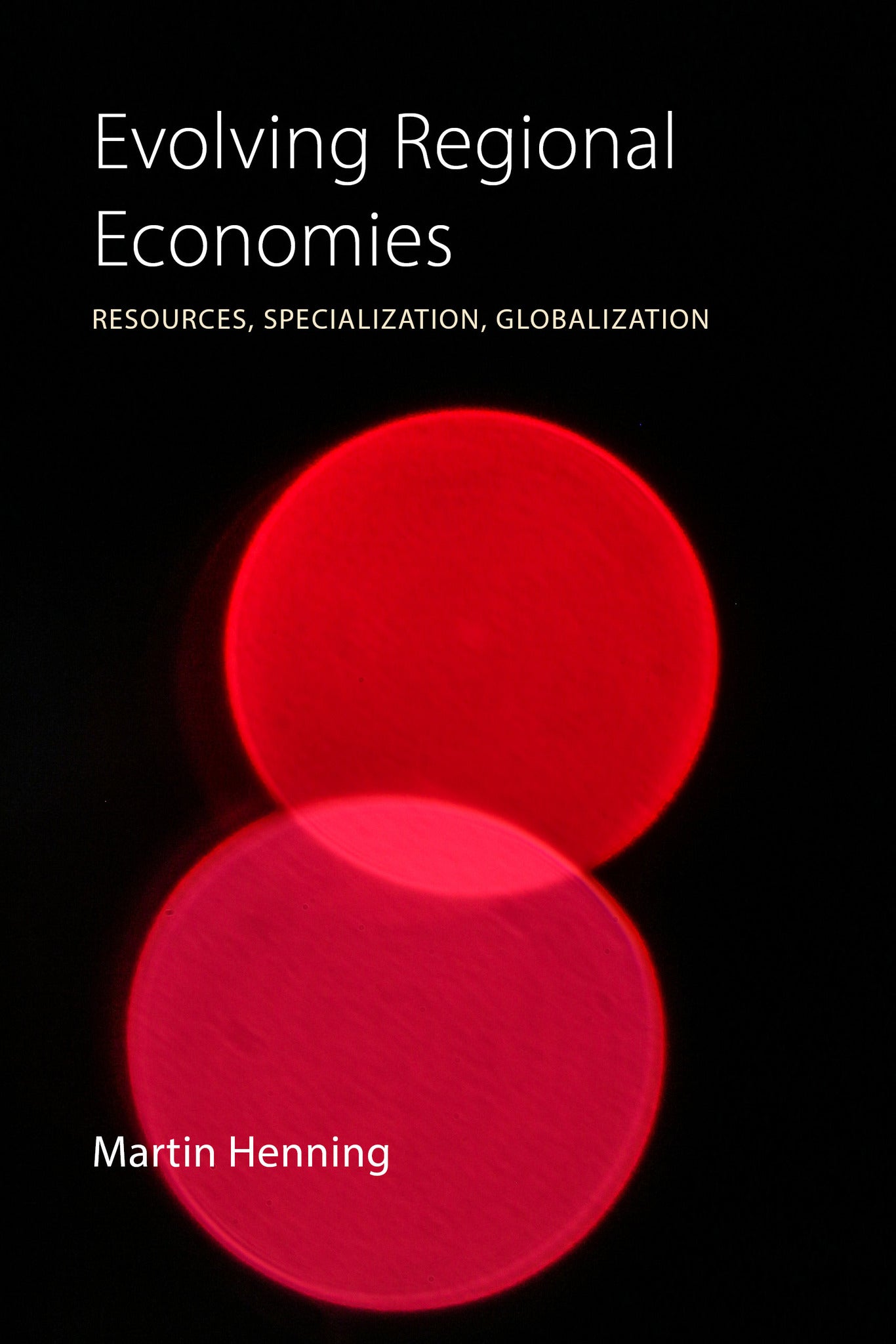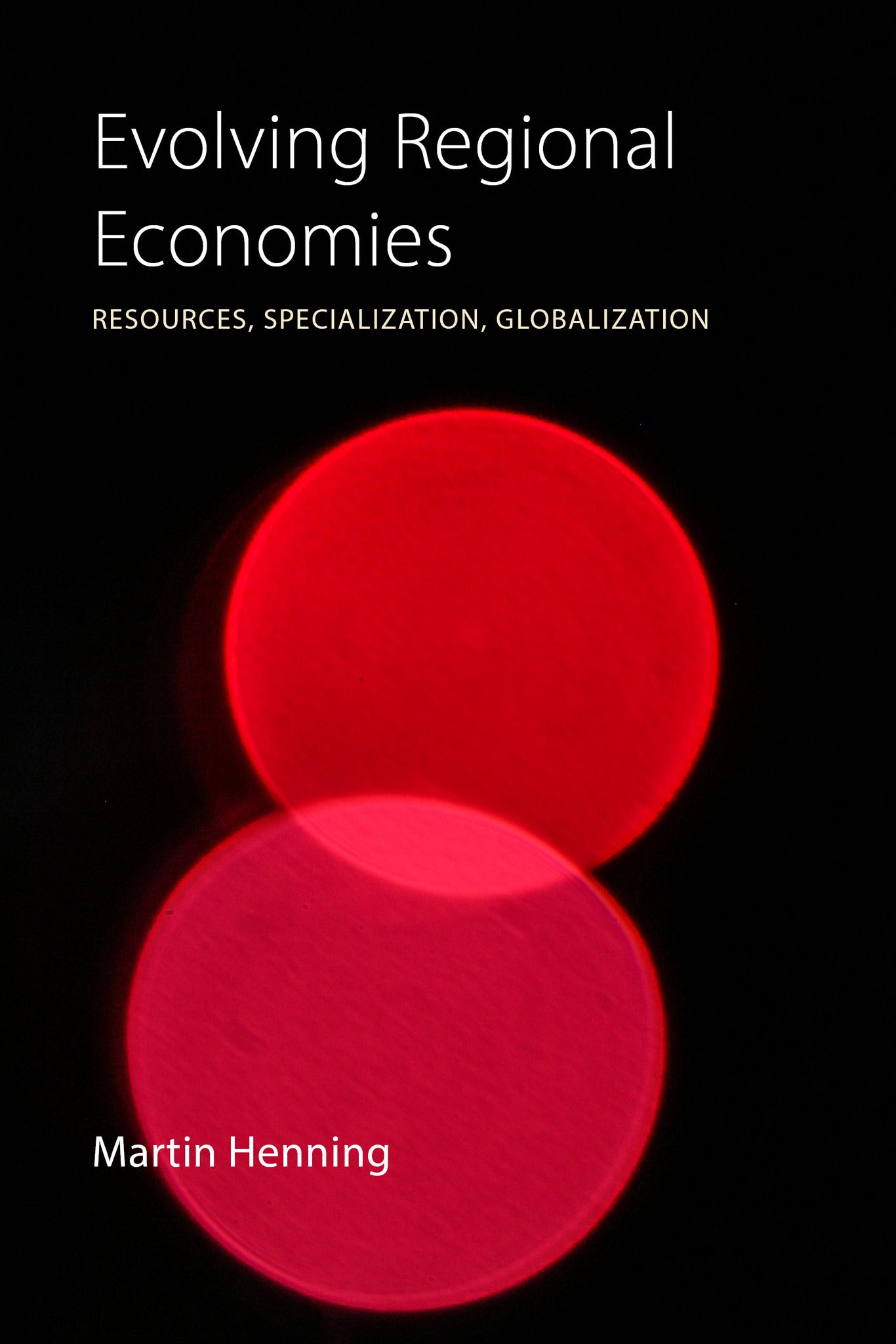We're sorry. An error has occurred
Please cancel or retry.
Evolving Regional Economies

Some error occured while loading the Quick View. Please close the Quick View and try reloading the page.
Couldn't load pickup availability
- Format:
-
27 January 2022

Regional issues are increasingly debated across the social sciences. In an age of globalization, the region has come to matter perhaps more than before. In business, companies orient themselves to engage in regional environments to build capabilities and create critical mass in their vicinity. In the world of policy, almost one-third of the EU budget is spent on regional policy. Yet in spite of this the differences between regions that do well and those that do not are increasing in both Europe and the United States.
In recent years, evolutionary economic geography has done much to create a framework to inform regional policy and academic work. Using its insights, Martin Henning explores why economic growth and transformation is an essentially regionally based and spatially dependent process. The book offers an accessible introduction to the core ideas involved in understanding the dynamics of regional economies and draws on case studies to illuminate these ideas in practice.

SOCIAL SCIENCE / Regional Studies, Political economy

1. Regional economies, but global too2. Evolutionary economic geography
3. Time geography
4. An evolutionary perspective to economic production
5. Resources in firms and in regions
6. Creation, use and curation of regional resources
7. Regional economic change: path dependency and radical transformation
8. Agglomerations
9. Evolutionary economic geography and time geography
10. The secular change: globalization, decreased constraints and the portability of resource use
Conclusions



